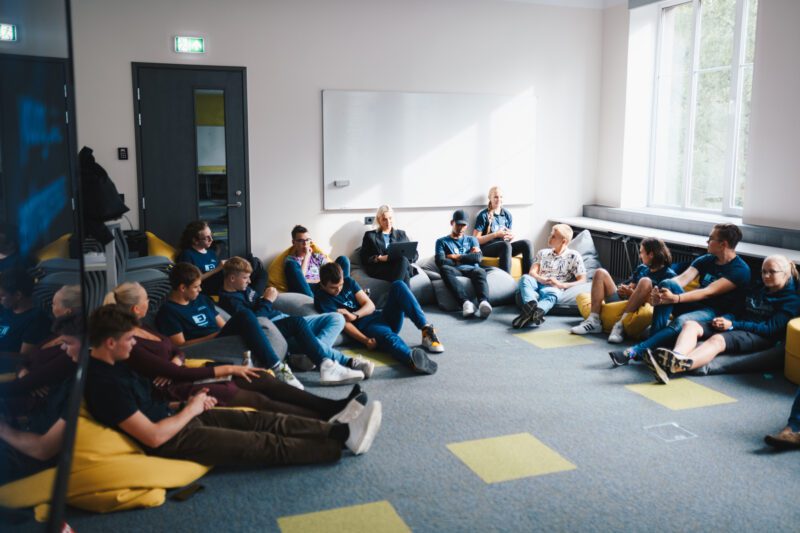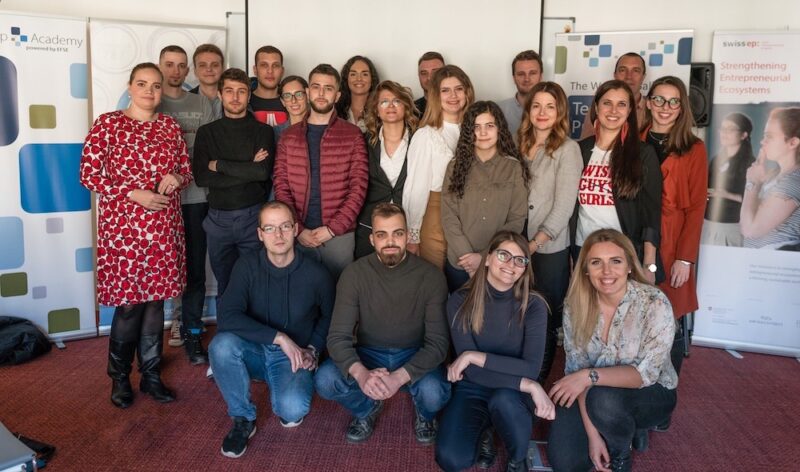How to Effectively Select Startups and Conduct Due Diligence

Selecting startups and conducting thorough due diligence are critical tasks in the investment landscape, particularly for early-stage ventures. Alexandra Balkova, Head of Portfolio at Startup Wiseguys, offers invaluable insights into these processes, emphasizing the importance of a structured approach, key evaluation factors, and the integration of expert opinions. With 9 years of experience in venture capital and a keen eye for promising startups, Alexandra shares her expert knowledge to help investors navigate this complex terrain.
The Startup Selection Process
Startup Wiseguys employs a structured, multi-stage approach to selecting startups, beginning with a rigorous pre-selection phase. This initial phase is managed by the scouting department, which meticulously assesses the applications submitted. The primary focus at this stage is on the completeness and clarity of the application, which includes a detailed description of the problem the startup aims to solve, the proposed solution, and the current stage of product development. If the application is deemed sufficiently detailed and promising, the startup is invited to present their product in more depth, emphasizing its functionality and market potential.
Following this pre-selection phase, startups undergo a comprehensive due diligence process. This involves a series of evaluations covering various aspects of the startup:
- Technical Evaluation: Assessing the scalability, transparency, agility, and reliability of the technology.
- Legal Checks: Ensuring proper incorporation, intellectual property rights, compliance, and absence of legal risks.
- Financial Analysis: Reviewing financial statements, burn rate, revenue projections, and cap table structure.
- Market and Competition: Analyzing market size, growth potential, and competitive landscape.Team Evaluation: Examining the founding team’s experience, dynamics, and commitment.
- Team Evaluation: Examining the founding team’s experience, dynamics, and commitment.
“At Startup Wise Guys, startups undergo rigorous interviews, often lasting several hours. Even if a startup doesn’t make it on the first try, we encourage them to take our feedback, improve, and reapply. We’ve seen many success stories from startups who made it on their second or even third attempt.”
Alexandra Balkova
Key Factors in Startup Selection
The founding team is often the most crucial factor in startup evaluation. Investors look for experience and expertise within the team, ensuring they have a solid track record and relevant industry knowledge. The commitment of the founders is also vital; they should be working full-time on the startup, with a balanced equity split to reflect their dedication.
Another significant aspect is the product’s fit within the market. Investors assess whether the startup addresses a substantial problem with a viable solution. Market potential is also critical; the target market should be large and growing, offering ample opportunities for scale. Early signs of market acceptance, such as user growth, revenue, or strategic partnerships, are strong indicators of traction.
Financial health is another cornerstone of the evaluation process. Even if a startup is pre-revenue, a clear understanding of existing expenses and future revenue projections is crucial. A well-structured cap table, with a reasonable allocation for an option pool, is essential for ensuring that the startup can attract and retain talent.
Best Practices for Conducting Due Diligence
Comprehensive due diligence should cover all aspects of the startup, from technical and legal to financial and market analysis. Engaging multiple experts provides a well-rounded perspective on the startup’s potential and helps identify both opportunities and risks. Given the importance of the founding team, investors should pay close attention to team dynamics, asking questions that reveal how well the team works together and their long-term commitment to the project.
Types of Due Diligence
Several types of due diligence are conducted to ensure a comprehensive evaluation of each startup:
- Financial Due Diligence: Evaluates the financial health and projections of the startup.
- Legal Due Diligence: Assesses the legal structure, agreements, and compliance risks.
- Market Due Diligence: Analyzes the market size, growth potential, and competition.
- Operations and Execution Due Diligence: Reviews the team dynamics, processes, and operational efficiency.
- Technical Due Diligence: Examines the technology, product scalability, and infrastructure.
- Social and Environmental Sustainability Factors: Evaluates the startup’s impact on social and environmental aspects.
Real-World Examples
To illustrate the evaluation process, consider two real-world examples of startups assessed by Startup Wiseguys:
- Startup 1: Focuses on an AI solution for anticipating communication risks and opportunities in the realm of disinformation. Despite having 30-40K in monthly revenue, their sales were project-based rather than recurring. The co-founders had strong technical backgrounds but lacked sales experience. Nevertheless, their ability to attract customers from different countries and renew existing clients indicated strong market potential.
- Startup 2: Offers a platform builder that allows businesses to create custom platforms, saving up to 80% in time and budget. Despite having raised 1.6 million previously, their revenue was only 3K, and the co-founders were not working full-time on the project. The equity split was heavily skewed, with one founder holding 60% and the other only 10%, raising concerns about commitment and team dynamics.
In evaluating these startups, Startup Wiseguys decided to invest in the first startup due to its stronger revenue, equal commitment from co-founders, and a balanced cap table. The second startup, despite having raised significant funds previously, showed too many red flags in terms of financial health and team commitment.
Conclusion
Effective startup selection and due diligence are pivotal in identifying promising investments and mitigating risks. By focusing on comprehensive evaluation, engaging multiple experts, and understanding team dynamics, investors can make informed decisions that align with their strategic goals. For startups, being transparent, understanding your market, and demonstrating strong team dynamics are key to attracting investment.
August 19, 2024


